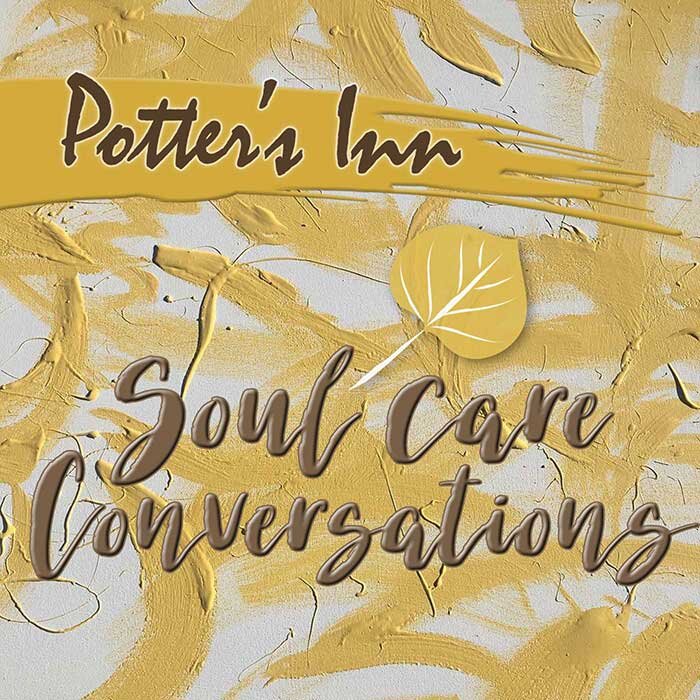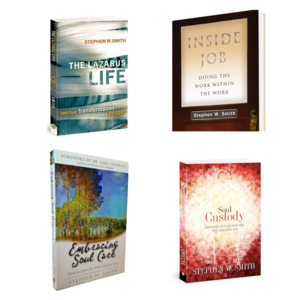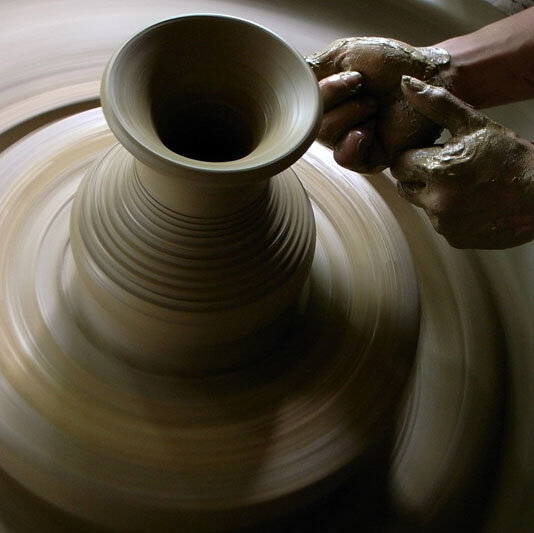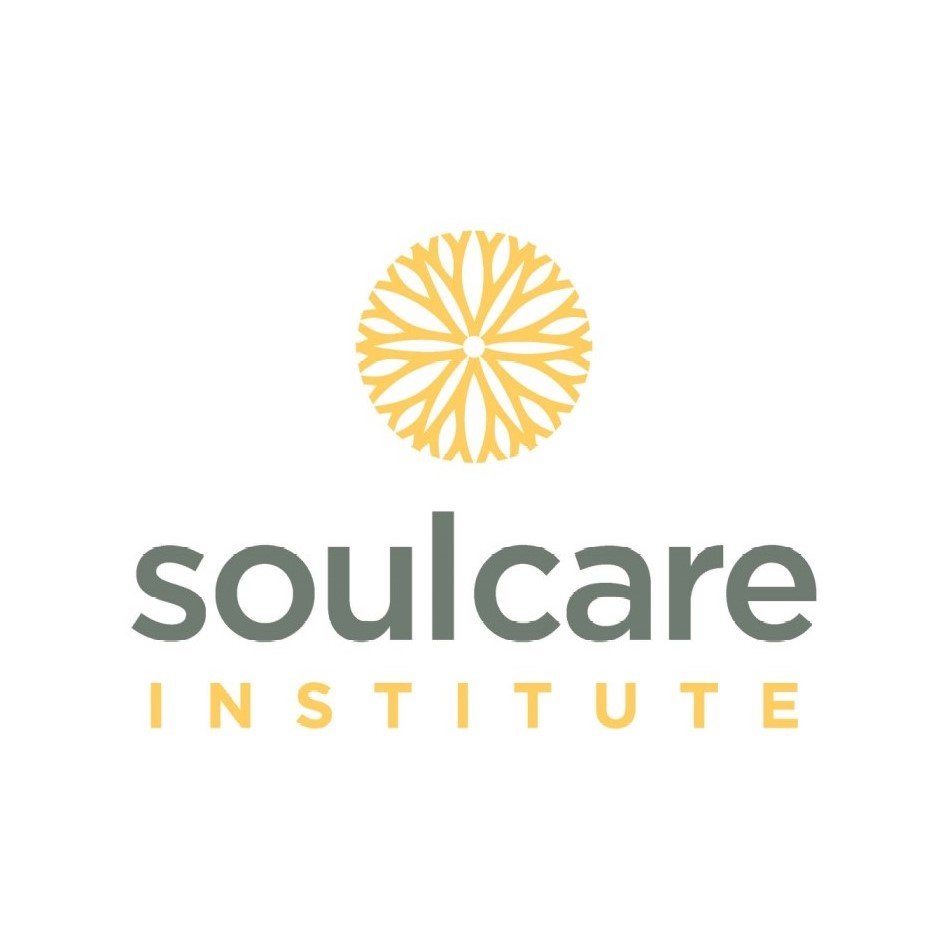by Stephen W. Smith
We need a new way to live. We have mistakenly believed that we can set more goals and by achieving our goals, we will arrive at this “new way of living” which promises to be better, more efficient and more rewarding.
It may not be as much about setting new goals as it is a whole new way of learning to live.
The old ways we have lived by and timeworn paradigms that seemed to have helped us before, have given way to stress, anxiety, factions and a growing sense of being “done.” Never in my life, have I encountered such an expanding people group as those who feel “done” and are teeter-tottering on the brink of despair. Exhaustion is the #1 malady I hear--day in and day out throughout the year. When we try to muster up the strength again to “try harder” and other failing mantras we have lived by in the past, we end up with a deep sense of loss; a growing alienation between ourselves and others who seem to have adopted a survival swag—a cadence marked by busyness, exhaustion and darkness. We need a new way to live and there is hope!
The early followers of Jesus were not called, “Christians.” They were called “followers of the way.” The Gospel writer, Luke, documents this title describing the first followers of Jesus, no less than five times, in his narrative of the book of Acts. The "way" that people lived marked them as much as the beliefs they ascribed to in the early church. When we lose our way—we can lose our life. I’m so deeply encouraged by this ancient title given to the early followers and I believe as we more clearly find our way to live—we will also find our life. As we find our way, we will also experience the life God has promised.
This way of living is not about doing more, believing harder or mustering up more faith. It may well involve some deconstructing of the ways we have amassed and “un-learning” some of the beliefs we’ve hoarded along the way. For me, I've been "de-constructing" some of the baggage I've carried throughout my adult life. Some old ways simply do not work anymore. How about you?
A new way of living is actually quite simple. Learning this way is not dependent upon our IQ or EQ or Enneagram number. We seem to always be on the lookout for a new program--a new book--a new insight that will FINALLY bring relief and help.
Soul Care is more of a way than it is a program. Caring for the soul is more organic than a step-by-step way to live. For many reasons, we humans tend to make things into programs, denominations and structures when there is a simpler, more easy to grasp—way of living. When caring for the soul begins to resemble a program, I believe we have already erred by morphing something organic and simple into a structure or system.
Let me make a few statements here that you might want to pause with and ponder. Consider transcribing these into your journal or carry them around in your wallet and refer back to them often. By thinking through these simple statements, and by understanding the implications, we can learn and then practice the art of soul care:
Caring for one’s soul is a way of being—more than a way of believing.
Caring for one’s soul is a way of seeing life that integrates our roles, vocations, health, past, passions and wounds into one integrated way of viewing life.
Caring for one’s soul is about emotional, physical, relational and vocational well being. It is living undivided in each of these spheres- not just keeping parts of our life in silos where we are left to manage them.
Caring for one’s soul is believing that we are human beings first and human doings second.
Caring for one’s soul is learning to live with the soul in mind and by learning to “keep the soul” we learn to help keep the souls of others.
Caring for the soul is believing in the dignity of the soul of all people without assault, discrimination, prejudice and preference.
Soul Care is a way of being in the world without being shaped by the world. The statements I have listed here are value statements that we first must grasp before we can start living or turning our life around. I believe that this is how Jesus cast a whole other way of living in his life style and teaching. He offered people a whole other way of doing life than their religion offered.
Caring for one’s soul is being more shaped by Jesus’ ways of doing his life than by signing a statement of faith or being in a certain church. When we learn to care for our souls, we embrace some guidelines that shape our days—which then shape our weeks—then our months and eventually our years. We care for our souls because how we live our days is eventually how we live our lives. We want our lives to be marked by more than busyness and running on empty.
As we are being shaped, we find the trajectory of our lives changes. This is precisely what happened when Jesus re-shaped the thinking of Zacchaeus, the woman at the well, Martha and Mary and many others. He offered them a different paradigm. He offered them a whole new way of living.
Allow me to list for you some of the major components of caring for the soul:
1. We live with the soul in mind. When we live with the soul in mind, I mean that we learn how valuable, how dignified, how incredible our souls are. We learn not to gain and gain at the expense of our own souls. We learn to live with a robust sense of sanity and conviction that often sounds like this: Though I am free to live with choices and convictions, I embrace the truth that not all things are truly good for me. I must learn to live with my soul in mind and not just money. I must learn to cultivate my soul with healthy practices that foster a resilient life. I want to honor life in all forms and help guard the dignity of life.
2. We want to see God in all things. To see God in all things, I must learn to slow down, look around and within my own heart and acknowledge and consent to God being present in the world. This is the art of learning to live in a contemplative way—not just a way to survive. By awakening to this core truth—that God is in the world and is active in ways I have yet to see and realize, I can learn to participate in what God is up to and join God in his on-going work of transformation.
3. We learn to live in rhythm. Our lives are marked by the markings of Sabbath time, being engaged and then disengaging and accepting the realization that my life is not up to me. My time is not up to me and my success is not up to me. I walk with a different cadence—a flow of life that is not marked by hurry and scurry but by intentionality and fullness.
4. We practice exercises which awaken our hearts and strengthen our muscles to be able to more fully experience the life God intends to offer us. Two of the most important exercises that mark people who care for their souls is a growing understanding of wha t silence does and what solitude offers. In our noisy world, we want to follow the way of Jesus by being quiet more and listening more. We want to make sure we are creating space for God –to hear His Voice and to sense His great love for us.
5. We grow in our understanding that soul care is not just for ourselves but is really a mission that is for the sake of others. While caring for the soul is never an act of being selfish—we learn that as we grow healthy, we want others to experience what we ourselves have tasted. We want to help. We want to love. We want to reach out beyond ourselves because this is the precise mark of love. Love gives and as we learn to love ourselves, we learn to give away what we cannot keep.
As we enter a New Year, may our souls have more of a place of importance than making ends meet. May our souls be inspired to rise up and live on a plane of living that is not of this world and is marked by the life-giving ways of Jesus.




